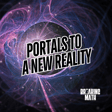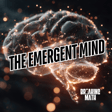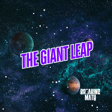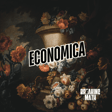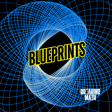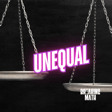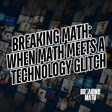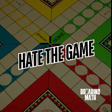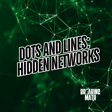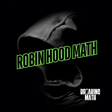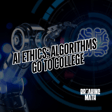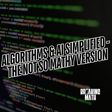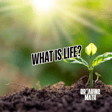Introduction to Michael Brooks and His Approach
00:00:00
Speaker
Michael Brooks is a science writer who specializes in making difficult concepts easier to grasp.
00:00:05
Speaker
In his latest book, Brooke goes through several mathematical concepts and discusses their motivation, history, and discovery. So how do stories make it easier to learn? What are some of the challenges associated with conveying difficult concepts to the general public? And who historically has been a mathematician? All this and more on this episode of Breaking Math. Episode 69, an interview with author Michael Brooks.
00:00:36
Speaker
I'm Sophia. And I'm Gabriel. And I'm Merrill. And you're listening to Breaking Math. With us we have on Michael Brooks. Hi. Welcome to the podcast, Michael. Thank you. Thank you so much for joining us, sir.
Brooks' Writing Journey and Focus on Anomalies
00:00:47
Speaker
I see this is your second book real quick. Can you tell us a little bit about your first book? And then the next question will be, tell us about what motivated you for your second book.
00:00:55
Speaker
OK, well, actually, I mean, there's been quite a few books. So there's been four or five. There was a big success with my first book, which was 13 Things That Don't Make Sense, which was probably like a decade ago now. And that was a book about scientific anomalies. And since then, I've written books about what the next discoveries might be and about how science actually works.
00:01:18
Speaker
Oh, and just to clarify, by scientific anomalies, do you mean like quasars and stuff? I mean things like dark energy and dark matter, where 96% of the universe seems to be missing, and scientists can't understand what it is. So it's about things that scientists are working on, but haven't really yet figured out. And it was motivated by the Isaac Asimov quote, where he says, the most important thing to hear in science is not eureka, but that's funny.
00:01:45
Speaker
And it's just kind of like those things are the things where you get breakthrough. But this book was inspired really by kind of going through decades of being a science writer.
The Historical Role of Mathematics
00:01:58
Speaker
And I trained as a physicist. I did a PhD in quantum physics. And I just kind of, you know,
00:02:05
Speaker
had this growing realization that behind everything that was sitting in this bedrock of mathematics that nobody really kind of engages with properly in society as far as I can understand. You kind of leave it for other people to do in a lot of cases unless you're actually working in the field or doing something technical. People didn't understand
00:02:25
Speaker
just how important mathematics was, not just for doing technical stuff in the 21st century, but actually it was important right from the start of humanity starting to settle into agriculture and building cities and finding ways to create great architecture and art. So it was kind of an exploration of all that stuff that maths has actually been doing for us for millennia, rather than just thinking about, oh, it's maths that makes Google work.
00:02:54
Speaker
Nice. And I really liked the story approach that you took to everything. I was talking to Gabriel right before we did the podcast and I was telling him how when I'm having trouble with like a math or science concept, sometimes I look at the history section on Wikipedia and kind of see the motivation for the problem. Where this came from? Was it a puzzle? Was it a real problem being solved?
00:03:14
Speaker
And I mean, your chapter on Napier and logarithms kind of, I think, shows that process beautifully. But let me ask you a question just to get this not necessarily started, but to keep
Storytelling in Mathematics
00:03:24
Speaker
things going. How do stories make it easier to learn? Oh, I think because it just engages all of us, all of our humanity, if you like.
00:03:32
Speaker
because I think, you know, we're much more motivated. As you say, you know, you can kind of get your brain switched on much more if you understand why you're learning something or where it came from and what it might be useful for. So if I tell stories about, you know, where this mass came from, automatically, you're like, oh, okay, I can see what problem they were trying to solve. Or I can see there was a person behind this who, you know, and when we see human beings doing stuff, it's much more interesting and engaging.
00:03:57
Speaker
than when we just see equations on a board. And I think this sort of goes down to how we learn in school and particularly how we learn mathematics. It tends to be, here's how to solve this problem. Here's how to pass this exam. Here's how to get yourself from A to B in terms of learning math and
00:04:16
Speaker
progressing to the next level without ever really understanding where these things came from and why you're learning them and it's interesting because with a lot of math I think you can say well you don't need to learn it like you know I would say like 80% of people are never going to use a quadratic equation in there you know once they've left school kind of thing
00:04:36
Speaker
But actually, to learn that quadratic equations and their solutions were part of Babylonian culture to help them collect taxes and understand how to run a civilization because you need the money and you need to tax people. And how do you do that fairly? And it comes down to working out the areas of fields and things like that. And to me, that brings the whole idea of algebra to life much more than just here's the equation, here's how to solve it, and then move on to the next one.
00:05:06
Speaker
I really, really appreciate you saying that and that touches on why math can be frustrating for a lot of people or why a lot of folks might not get it. I found that in my degree, my undergrad in electrical engineering, there were times where I was doing a derivative of E to the X so many times that I didn't even think about it. I didn't even appreciate it.
00:05:26
Speaker
I just knew you do this to this symbol and you get this and then I move on because the test is too big and I can't appreciate what e to the x is and what and why is a derivative of e to the x just e to the x I don't know but I just do it I just do it you know don't ask questions so it's the opportunity to to actually read a book like yours or similar books
00:05:47
Speaker
And to see the bigger picture of what it actually means, I think that is so necessary for people to really understand the beauty of mathematics because they're missing so much. So I just think that's awesome. One of the questions I had for you, well, it's kind of a two-parter here.
Challenges in Simplifying Complex Concepts
00:06:02
Speaker
I have a rough outline of questions I made.
00:06:04
Speaker
I want to ask you about putting together this book. One of the two questions is, what was the hardest concept to research and put into layman's terms? But then a dovetail question is, tell us about the order of your book. And I mean, obviously it's chronological, but like the structure of your book, like what did you learn about yourself and your understanding of math as you put the book together?
00:06:27
Speaker
Oh, so let me start at the beginning. So the hardest thing that I think I had to come to terms with weirdly was probably not like the hardest mathematical thing. But I found when I was trying to explain how logarithms work and where they came from,
00:06:44
Speaker
and I was looking at the work of John Napier and saying, this guy did 10 million entries and it took him 20 years to create the first book of log tables and working out exactly what he did and how he kind of
00:07:01
Speaker
calculated these things like, you know, I sort of go into it in the book, like beads moving along a wire and you calculate the angle and the sign of the angle and then that sort of gives you the logarithm is the length that's left on the top of here and then you progress to the next thing and the next thing. It was just one of those things where I just got this terrible mental block and I was just like,
00:07:19
Speaker
I can't get my head around what he did.
Impact of Imaginary Numbers in Engineering
00:07:21
Speaker
This is ridiculous. This was like the 17th century. It wasn't complicated math particularly, but there was something in me that was just like, oh, this is hard. And I think that's probably true of
00:07:35
Speaker
everything for everybody. Everybody has these things that they find quite easy to visualize and conceptualize. And other people just find them hard. I didn't find derivatives and calculus that hard to get my head around. I think information theory, which is my last chapter, is
00:07:53
Speaker
It's sort of much more conceptually difficult in some ways. But as far as the structure of the book goes, it just made sense to me to start with arithmetic, right? Because that's the first thing we did. And it's kind of the basis of everything. And once you understand what numbers are and what they're not as well, they're not these real things. They're these concepts and these things that act as tools for us to grab and then sort of do trade.
00:08:18
Speaker
or keep accounts and do that kind of thing. Then you start to see how, from there, you go to measuring, like, oh, how long is this length of rope or something like that? And then you get into geometry from that and the shapes. And so the first two chapters are arithmetic and geometry. And then we're sort of getting into algebra and calculus, which are the kind of next things to really come along. So a lot of it is kind of logically, kind of chronological, I guess.
00:08:48
Speaker
But I did then want to sort of get into things like imaginary numbers. I mean, you know, as an engineer, you'll appreciate imaginary numbers, you know, are just the most fantastic things and not at all imaginary and or no more imaginary than other numbers anyway. And so incredibly useful and literally built Silicon Valley, literally built electronics and the electrical
00:09:13
Speaker
It's the age of the early 20th century. Everything was sort of predicated on us being able to manipulate these imaginary numbers. I just kind of felt like they were so important and so under-appreciated in the world that they kind of get... It's like, okay, they get their own chapter and that's just going to be how it is. It's my book. I do it how I want. And then statistics, I felt, was another thing that didn't necessarily fit chronologically.
00:09:41
Speaker
But I think it's a really important thing. And again, certainly where I am in the UK, we don't really teach it in schools. People don't really get to it until they're doing a technical subject at university, for the most part. And then, for most people, that's not ever going to happen. And statistics is so important. If you get a grasp of statistics and you can navigate the world so much better than if you can't,
00:10:06
Speaker
And so I felt like that was a really important mathematical breakthrough in terms of our civilization and the way the world works for us is you've got to kind of understand where statistics come from, especially in an age of compressed data that's streaming through the internet and everything is done statistically. And then finally, the final chapter, which is about information. It's kind of the work of one guy, Claude Shannon, and it comes through
00:10:34
Speaker
really the sort of middle third of the 20th century is the information age where everything sort of gets established. And again, that's the thing that people
00:10:44
Speaker
live with every day. They're living the consequences of Claude Shannon's work. But nobody really outside of the subject really knows that much about him. His name isn't well known. He's not Einstein. So for me, it was such an important thing to be able to say, look, this is the age you're living in. It's a mathematical age. And it comes from this part of mathematical information theory, which has set up so much in our daily lives. And so again, I just thought this is an important thing to include if we're talking about how we build civilization.
00:11:15
Speaker
Oh, yeah, that makes total sense. And it seems like you're focused on the whole book with civilization. I mean, you've mentioned that several times. Stories making it easier for humans to grasp concepts. You touched on that earlier. I wanted to ask you.
00:11:31
Speaker
After doing research for this book, what can you conclude about historically who was a mathematician? Like, it seems like a lot of time, and this is something I always noticed in school, was that you have these people, it's like they seem to have immense resources at their disposal. Do you have any comment on that?
Historical Mathematicians and Their Impact
00:11:50
Speaker
Well, I think, you know, in different times, you know, before we had, you know, grand universities and academia, you didn't
00:11:59
Speaker
really have to engage with numbers in the same way, perhaps, in daily life. If you're trading in a market, you're doing arithmetic, you're doing basic stuff. And there's relatively few people who are doing innovation, like creating new maths and being a mathematician. And so you have people like Cardano in the 16th century, who is coming up with new solutions for algebraic equations. But he's working as a teacher at a university.
00:12:28
Speaker
John Napier is a Scottish aristocrat, nobleman. He's got family money. So a lot of the innovation I think comes from people who have the leisure time to be spending doing that kind of thing. But in everyday life, people could do arithmetic.
00:12:45
Speaker
There's an interesting thing around when Cardano was doing his, he wanted to write this book on algebra and he gets into this massive fight, feud with the guy called Nicola Tartaglia over him publishing what was supposed to be a secret result.
00:13:01
Speaker
And at that time, mathematicians were looking for jobs and looking for employment and looking for people who would pay them to do the maths. And it was important to them to be the best around. And they would effectively do public duels. They would do mathematical competitions in the streets. So this is in Renaissance Italy. And people would watch these competitions and see which mathematician was solving this and which one couldn't do that.
00:13:28
Speaker
And so I think there may well have been a situation where in certain regions of the world, you had people who were just running market stalls or selling cloth from a shop or something, but actually had an appreciation of that.
00:13:43
Speaker
At the time, people were actually circulating pamphlets about what these disputes were about and about algebra and how algebra works and why Tartaglia is saying this and why Cardano is doing that and what this all comes from. So I think you had specialized mathematicians who were pretty few and far between, but actually you also had, I think people were generally sort of cognizant of numbers and how numbers work. And the fact that mathematics was generally kind of venerated and important
00:14:11
Speaker
That's not this fascinating. Also, I want to go into the past and see these. I'm just imagining two mathematicians in a circle and everybody's throwing dice, trading money, betting on the mathematician. One of the funny things about Cardano is that he invented probability theory. He was the first person to write out probability theory. And he did it because he had a gambling problem. So he kind of was losing money.
00:14:38
Speaker
and worked out how he should bet when he was placing these bets. He kind of worked out if there's this number of cards in a deck and I need one of six of these, then these are the odds of me working this out. So it's a very practical discipline, really, in those days. I like how it's practical, but he's still betting things, so isn't that essentially a martingale?
00:15:00
Speaker
I mean, he actually, I mean, he was kind of the only guy in the whole world who knew how this whole thing worked and he was still losing money. So it was amazing. It reminds me of those people who work on slot machines who still use them. Oh my gosh. That's, that's wild, isn't that? Yeah, they'll go on their lunch break and after manipulating statistics and manipulate themselves. Yeah. No. Yeah. So the human brain itself is so prone to error. That's, that's, that's crazy. That's so true.
00:15:29
Speaker
So I want to know two questions. Who's your favorite mathematician in the book? And who's the most eclectic to you? I mean, I know Matt Napier is pretty eclectic. And we talked a little bit about one of our episodes, the story about one of his servants was stealing stuff. So they made everyone touch a black rooster in a dark room. And the person without suit on their hands that was on the rooster was the person who was stealing. And just like, you know, he's a fascinating character, but who are your favorite characters in mathematics?
00:15:58
Speaker
Well, so I guess Cardano has to be up there. I mean, one of my other books was about Cardano and about the role that he played in establishing the foundations for quantum theory, which is kind of my discipline.
00:16:14
Speaker
So I wrote that book about him. And so I guess I've always been fascinated by him. But I think also his arch rival, his nemesis, Nicolas Tartaglia, really impressed me the more I dug into his life. Because he had this thing where he was using maths and developing maths. And he had this appalling backstory where he was named as a child by some French soldiers. And he could hardly talk.
00:16:43
Speaker
as a child, which is why he was called Tartaglia, which means the stammerer. So he couldn't really talk properly because he got maimed by this Frenchman's sword as a child. And he just pulled himself up, really educated himself. He had about six days of schooling and then stole the teacher's textbook and kind of took off with it. And so he could teach himself the rest of it because he couldn't afford any more school. And he actually became a really, really great scholar.
00:17:13
Speaker
And not only that, but he was a pretty interesting human being.
Interweaving Mathematics and Human Stories
00:17:18
Speaker
And he developed the science of artillery. So he invented the mathematics of how to aim a cannon. So he was the first person to kind of write down the formulas for how to aim a cannon if you want it. If you have a certain angle with a barrel, you'll get this kind of distance. And that's pre-Newton, right? Yeah, yeah, very much so. And he just tore up all his notes because he realized this was going to be used for killing people.
00:17:43
Speaker
And he didn't want anything to do with it. So he actually burned his manuscript and said, I'm not having anything to do with this. This is a terrible thing because I've realized what I've done is just facilitate humans murdering each other.
00:17:58
Speaker
And then eventually, he was in Renaissance Italy. There were the Crusades going on. There was a kind of Islamic insurgents into Europe. And they were fighting. There was a lot of fighting between the Catholic Church and the Islamic forces. And in the end, he felt like, oh, God wants me to do this work. So for religious reasons, he redid all his calculations and wrote them out and showed
00:18:28
Speaker
the sort of other generals how to aim their artillery but you have this real crisis of conscience which I really like you know and that goes on you know that's a very human thing like we still have that now you know the scientists who work on the atomic bomb they were they were really sort of torn in it for the most part about what they were doing and whether it was a good thing and I think it kind of shows how intimate the interaction between mathematics and humanity and civilization really is and
00:18:53
Speaker
Wow, the way you said that, I really, really firmly appreciate the interweaving, like two strands of DNA between the humanity and the stories and the geopolitical conflicts and mathematics. So the whole story element just makes it really, really rich. So yeah, wow, that's really cool. I have a whole bunch of questions that have come up, but I would like to give the floor to Merrill. How are you doing, Merrill?
00:19:18
Speaker
doing well. And I wanted to say that one thing that's been mentioned as well, I am fascinated by the story of one particular chapter in this book. Also having an engineering background, I think we all have at least a little bit of engineer in us. One thing that always, you know, appealed to me was imaginary numbers in particular. And so that's one thing I enjoyed was how you started with the story of Fender and how amplifiers as we
00:19:48
Speaker
know them would just not exist without imaginary numbers. Yeah, it's an incredible thing to think that, I mean, it was really hard to produce electrical circuits, because, you know, if you're an electrical engineer today, you know exactly how to design any circuit that you want to do. But it's sort of fairly straightforward, because you use imaginary numbers as a J symbol in all these equations.
00:20:12
Speaker
And when we were looking to kind of first to roll out electricity into cities, you know, make it something where, you know, people just had it in their homes and offices and factories and things.
00:20:22
Speaker
Everyone was working in terms of sines and cosines and these ridiculously cumbersome calculations for what a circuit would do and how to predict and how to design the circuit that you want. And it was just sort of impossible. And then along comes Charles Steinmetz in I think it was 1893 at the Chicago World Fair and just sort of says, hey guys, you can get rid of the whole of the sine and cosine problem with your alternating current if you just use imaginary numbers. And kind of just completely revolutionizes the way
00:20:52
Speaker
that engineers can work, which brings you radio circuits. And it just becomes easy to produce these manuals for how to produce radio circuits and how to produce all the electronic circuits. So it just becomes common to be able to manipulate electric circuits. And Leo Fender was working as a radio repair guy.
00:21:15
Speaker
And just then branched out into PA systems for events and then into amplifiers. And then we've got the Fender electric guitar amp and the rest is history. And it all stems from that twist where you bring imaginary numbers into the game and suddenly everything's possible.
00:21:36
Speaker
Right, because instead of your regular idea of voltage or current, now we have phasors, which phasors with an O, not an E. It's not the Star Trek kind. But also things like we don't think of terms, we don't think as much in terms of capacitance or inductance or resistance. Now we have impedance, which is complex and accounts for all of those things.
00:22:02
Speaker
And then that can tell us, you know, now we have magnitude and phase all wrapped into one. And the more you learn about how complex numbers as a whole work, well, you're thinking of it as a vector with a magnitude and an angle. Well, all these different things are possible now. And I still, to this day, the way it all, you keep seeing those interrelations, the more different things you work with, and it just all keeps coming back to that.
00:22:31
Speaker
Yeah. And I love the fact that these complex numbers are just a mix of what we call real and what we call imaginary numbers. Actually, they're just two sets of numbers that allow us to work in these kind of multifaceted ways. So I think when people first come across them, imaginary numbers seem absolutely terrifying, but they're no different to normal numbers. And it's just this whole system of complex numbers allows you to just do something that's just kind of out of this world.
00:22:58
Speaker
But that's the amazing thing, though. It's also very in this world. And I think it was when I took a class in undergrad on signal processing that it really hit me like a brick that complex numbers describe something very, they quantify something that they're tangible that, oh, you don't just have, because if you start thinking in frequency, now you have your frequencies, but you also have the phase.
Complex Numbers in Modern Science
00:23:27
Speaker
Now we can account for both of those because phase is just an angle shift. And that's mind blowing. Yeah. And for me, you can't have quantum physics without imaginary numbers, without complex numbers. It doesn't work. You literally, you know, the theory isn't there without that. Right. And that's something I'm a little less well versed in if you would like to go into more detail on that.
00:23:46
Speaker
Well, I mean, I'll just, just a little bit, basically, because we describe things using the Schrodinger wave equation, and it's exactly the same as in, you know, signal processing, electrical engineering, you've basically got a wave that's kind of, you know, that's progressing. And so anything that you describe as a wave, you know, you use imaginary numbers. So whether it's signal processing in electronics or, or in, you know, the wave function of a quantum object, like a proton or a photon of light or whatever.
00:24:16
Speaker
then you use exactly this, the phase and the magnitude, in order to fully describe this thing. And it's an incredibly successful thing where you can build a theory that involves a wave equation with complex numbers in it, and it describes the most fundamental entities in the universe. I wanted to bring up to that, wasn't it Descartes? I think it was Descartes who didn't believe in negative numbers completely.
00:24:42
Speaker
So just learning that kind of made me realize, oh wait, an imaginary number is a complex number is not a pair of real numbers any more than a negative number is a pair of real numbers. Like you could do negative three is five minus eight or whatever, you know, and they're both positive.
00:25:00
Speaker
I think our concept of numbers is something we take so for granted now, right? Because it's one of the first things we learn when we're babies. Our parents will teach us these number rhymes and we'll learn to count and we'll start to associate two objects with the number two. And so we think of numbers as, you know, they're like our companions through life.
00:25:21
Speaker
And then, but those are all like normal counting numbers effectively, aren't they? So, you know, as a child, you learn to count, you know, up to and keep going and you keep going and you think, oh, I can count up to 10,000. And then your friend says, I can do 10,001. And it's, you know, it's like this goes on forever. And that's all great. But actually, we're in a position where, you know, then suddenly, sometimes there's just like an abrupt shift.
00:25:44
Speaker
So, people bring in things like, you know, somebody starts using negative numbers and saying, okay, well, you know, we can have these positive numbers. We've had them all of human history. And then, like, you know, just literally a few hundred years ago, really, people started saying, okay, but what about these negative numbers? You know, and it was much earlier in China and India, I have to say, than it was in the West.
00:26:08
Speaker
And they used red ink, right? Sorry? For negative. I just wanted to point out that our modern accounting practice of using red to do negative numbers actually comes from China, but I didn't mean to interrupt. Yeah, it comes from Chinese who use maths for accounting and business and use negative numbers to symbolize debt. And so it just became really easy for them to kind of do more complex accounting because they were
00:26:34
Speaker
basically using debt in India too, and using these concepts just to do business. But in the West, we kind of had this conceptual brick wall where it's like you can't have this, which is why you get Descartes saying, people say that you can take away
00:26:52
Speaker
8 from 4, but you can't. That's ridiculous. It amuses me that Descartes was this incredible luminary in mathematics, but now you would have elementary school children who would teach him a thing or two.
00:27:06
Speaker
That's that's incredible. That's incredible. I have a quick question for you. This is a very, very exciting time. I say quick question. I'm a liar. This is a very, very exciting time in science communications. And I know that you had mentioned that you have a PhD in quantum physics. This question is inspired by a couple other science communicators on YouTube. I don't know if you have any favorite YouTube science communicators. Do you have any?
00:27:29
Speaker
I shouldn't say favorite. Yeah. Admired ones. I really admire. There's a woman called Sabine Hosenfeld. I have her on my phone right now. That's her. That's her. Yes. She's great. She's just great. And I do know her. We've met a couple of times in the times back when we were allowed to meet. But she's a German scientist. And I just think she's incredibly smart and funny and also brave. I think she's quite a courageous communicator.
00:28:14
Speaker
Sabine released a video critiquing one of his videos and he loved it. He appreciated the comments. So his video was about something called the quantum, oh gosh, the quantum eraser experiment. Are you familiar with the quantum eraser experiment? Yeah. Okay. Okay. Have you seen her takedown of that video and showing that it's actually nothing whatsoever? So do you know what? I haven't seen that video, but I can imagine what she's saying.
00:28:43
Speaker
So because it's a big, so Sabine's take on the quantum eraser, I think will be that there are certain ways of interpreting this experiment. And it's basically an experiment that says you can alter the behavior of a or the character maybe is better way.
00:29:03
Speaker
saying of a quantum object. I don't know how to describe these things because they're not waves and they're not particles. So let's call them quantum objects. And you can alter their character by doing something after that character has kind of been formed already. So the quantum eraser seems to suggest that you can kind of have this backwards in time action on stuff. And Sabine's
00:29:27
Speaker
take on that I think is that actually there are complexities in how we interpret those experiments that people don't really talk about. So people generally in quantum physics really just sort of allowed a few different interpretations
00:29:42
Speaker
But a very few like two or three of what's going on in quantum physics to to take over and you know Famously people say oh, you know shredding is cat. It's dead and alive at the same time So quantum things can be in multiple states at once and while that's true in some respects what it is
00:29:59
Speaker
really saying is we don't really understand exactly how this stuff works. And there's a thing called quantum entanglement where you can talk about it being a weird effect where things affect each other over huge distances instantaneously where they shouldn't be able to do so because Einstein's relativity tells us that you can't do that.
00:30:20
Speaker
And spooky action at a distance. Yeah, exactly. So so we're in a position where we sort of just say, OK, that's how it is. And Richard Feynman famously said, don't ask yourself, how can it be like that? It just is like that. And so we accept it. But actually, there are some people and Sabine's one of them who are saying, well, there are some hidden assumptions that we we need to think about, need to maybe address that have kind of just been brushed under the carpet. And I think it's a really her take on it is a really interesting one.
00:30:49
Speaker
And you have to remember that quantum theory is like 100 years old now. And we're effectively still in pretty much the same philosophical understanding as we were in the 1930s or the 1940s, maybe. People have just said, oh, I believe this. I believe in the multiverse. I believe there's like every time the quantum thing happens, and it sort of happens in a separate universe. And other people will say, no, I believe that actually what's going on is we haven't found the hidden variables that are behind this.
00:31:19
Speaker
weird effect and if we look more closely we'll find the reason for this. And there's no kind of way to tell between them because we haven't been able to progress the experiments or anything like that. There are reasons to ask difficult questions which is what Sabine is so good at doing.
00:31:34
Speaker
She's phenomenal. Um, so yeah, I highly recommend her channel to anybody as well as Matt doubts. His channel is phenomenal as well. His coverage of black holes is unlike anything I've ever seen. So they're all good. And I appreciate that they can critique each other and respond well. So good on them both. I thought.
00:31:49
Speaker
And just talking about the physics thing, like, you know, these unspoken assumptions, right before we get back to the book, I've always found it fascinating that, like, if I take two electron beams and, like, let's say I separate them by one meter and I fire particles and that the particles can interact at all. Like, sometimes I wonder, like, where the information of the location comes from. Like, how is the base code of the universe stored? But, like, that just touches other stuff.
00:32:16
Speaker
But just comment on that. It's a really interesting thing to think about, because we think about separating these things by a meter. And we live in this space and time, in Einstein's space and time, where we have three dimensions of space and one dimension of time. And it seems to be that's it to us. But actually, when you do the maths in physics, say string theory and trying to work that out,
00:32:43
Speaker
Um, whether you're, you know, you're looking at the multiverse or whether you're looking at quantum entanglement, it seems to be that there's something, it's not quite a full explanation to say, oh, you know, there's three dimensions of space and one of time. So entanglement seems to, um, involve in some ways, uh, something that acts outside of space and time. Oh yeah, we did that episode on Bell's theorem.
00:33:04
Speaker
Yeah, so Bell's theorem, depending on certain assumptions that you make, seems to suggest that there's something outside of space and time, which allows these kinds of strange correlations to occur. And you can say, oh, it's outside of space and time. Or you can say, it's just weird, which is probably what Feynman would have said, is stop asking difficult questions.
00:33:24
Speaker
But there's so much left to discover, really, which I find really great. I love the fact that after so many hundred years of doing physics, we've just uncovered more and more problems.
Future Mathematical Solutions for Anomalies
00:33:35
Speaker
Every time we think it all solved, it seems like somebody discovers something that throws a wrench in the work. I know that people thought that physics was solved with the electron formula and there wasn't. At the end of the 19th century, somebody famously said, all the physics is solved now and there's really nothing to do but fill in a few small gaps. Then along comes Einstein with relativity and quantum theory. Inside about 10 years, that whole thing had been blown apart.
00:34:03
Speaker
And it seems like almost we're seeing that with dark energy now as like you mentioned earlier. Yeah. Like how it's nobody knows what it is. And it looks like it's not a large scale effect. It looks like it's actually something.
00:34:16
Speaker
Well, exactly. So, you know, we have this anomaly where you've basically got 96% of the universe is in a form that we don't understand, you know, some of it's dark matter and some of it's dark energy. And there are those who think that it's actually because when we do the equations and go back to maths again, really, when we do the equations and sort of try and work out how to mathematically the universe, maybe we've got some maths missing that we're just not able to do yet. And we need to invent some new mathematics.
00:34:44
Speaker
that will allow us to get much better solutions that make sense of these anomalies that we see in experiments.
00:34:52
Speaker
Anyway, that's actually something that I wanted to touch on is just, that's what feels, you use the phrase, invent new mathematics. And sometimes it still messes with my brain a little bit that you can just do that, that there are just these things in the world that sometimes are very tangible that we can make new rules to describe, essentially. Yeah, I mean, I know a lot of mathematicians say it's discovered, not invented.
00:35:22
Speaker
It becomes a matter of taste possibly the way you want to talk about that. When I look at Newton and Leibniz with calculus, it really looks to me like they invented it. They didn't discover it. It seems to me they constructed something that was an entirely new tool for mathematicians to work with.
00:35:42
Speaker
It seems to me, it just seems to be invented. I think it's usually invented for strong reasons like we need this solution. If you're talking about quadratic equations or quadratic equations, the solutions for those had to be kind of discovered.
00:36:00
Speaker
And then the people who were able to do that were then able to kind of use those for banking and finance. And it was basically a new way to make money, to predict how much you could make out of loaning money to a certain rate and things like that. So I think most mathematics seems to come out of really good motivations for like, I need to do this thing. And there isn't a tool available. And somebody, and it's
00:36:26
Speaker
really rare. I mean, you know, what happened with calculus is extraordinary. And, you know, there's an amazingly powerful tool that obviously we're, you know, we're using all the time now. But there was a time when it kind of wasn't there. And somebody had to sort of, you know, I would say invented, and others, I guess, would say somebody had to discover these relationships. But for me, it's, I think it's invention.
00:36:50
Speaker
And we also get into, oh, sorry, what? Oh, no, go ahead. Oh, I was just going to say, we also kind of get into semantics there too, because what is the difference really between an invention and a discovery? I mean, you could say that a discovery is a description of something new. And when you're dealing with something like math, maybe it's like arguing about which side of the coin should fall up, where it's like,
00:37:19
Speaker
Yeah. Okay. Maybe I shouldn't worry about it. I just worry about offending mathematicians, that's all. I've noticed that there's a big difference. Physicists tend to say that mathematics is invented and mathematicians tend to say it's discovered. Yeah.
00:37:39
Speaker
Hey, Breaking Math fans. First, I want to thank you for listening. I have an important message for everyone. You can start your own podcast right now with Anchor. Anchor lets you create and distribute your own podcast. Just get an idea, record, and upload. It's just that easy. Anyone can do it. I'm on my way to accomplishing my dream, and you can too. Just get on your device's app store and download Anchor. It contains everything you need to make a podcast. With Anchor, you can put your podcast on all the big platforms.
00:38:08
Speaker
Apple Podcast, Spotify, Google Podcast, Amazon, and more. Reach the whole world with Anchor. Best of all, Anchor is free. You have nothing to lose with a free platform. Download the Anchor app or go to anchor.fm to get started.
00:38:27
Speaker
I love the relationship historically between mathematicians and physicists. I was going to say we did episode four on that. That's right. That's right. Yeah. Yeah. What was it called again? Language of the universe. Okay. Okay. Yeah. Yeah. That's right. That's right. I recently heard a mathematicians versus physicists joke. I don't know if you guys are familiar with it. Have you guys heard the sheep joke about chemists? Oh, you have? Okay.
00:38:49
Speaker
Oh, very good. Okay. Well, it has something to do with there's a car in, let's say, Scotland, and it's driving through a hilly pasture. And inside the car, there is a chemist, a mathematician, and a physicist. As they're driving around the hill, the chemist sees a black sheep and says, oh, how about that? In Scotland, there are black sheep.
00:39:12
Speaker
And then the physicist sighs so annoyed and said, ugh, you biochemists know. In Scotland, we know that there is at least one black sheep on this hill. And then the mathematician hears that answer and groans and goes, ugh, you physicists know. In Scotland, we know that there is at least one side of one sheep that is black. I thought that's fantastic.
00:39:43
Speaker
Yes, yeah the whole splitter joiner thing
00:39:48
Speaker
I love the arrogance and the um, actually. In fact, there's a show done by a channel called College Schumer that has a show called Um, Actually, the show of nerds correcting nerds. And I think that's just a fantastic illustration. You have to chime in by saying um, actually, and then correct whatever the host says. So, you know, I think it's fantastic. So, yeah, yeah. So I got a question. What's your favorite chapter of your book?
00:40:15
Speaker
I'm going to say imaginary numbers. I'm kind of, you know, I'm just sort of in awe of these things. And I sort of, you know, I think in some ways, they're the whole reason I kind of got started on this, because I just couldn't believe when I was writing the book about Cardano, which is called The Quantum Astrologist Handbook.
00:40:35
Speaker
a few years back, I just sort of decided to see the power of imaginary numbers. And when I encountered them at school, I remember being like one of those kids who were like, oh, if they're imaginary, why aren't we bothering learning this kind of stuff? And what use could it possibly be? And to discover how powerful they are and how they, you know, they literally, you know, my life wouldn't work without, you know, this conversation couldn't happen without imaginary numbers. I think it's just incredible. And you tried designing an antenna with them.
00:41:04
Speaker
Try trying an antenna without them, you know on this podcast. We like square roots of negative one. We're also like solution quadratics that use quaternions. And I know that Octonians actually we did an episode where we talked about how they're essential to the structure of a kind of cosmology. I've seen I think I mentioned in the book that there's a Roger Penrose quote where he's like, you know, clearly nature
00:41:28
Speaker
requires us to use complex numbers to describe it. It has to be there. And then you've got the quaternions, and the octonions seem to be the way in which that happens. And people trying to construct quantum gravity theories that unite quantum physical relativity, they're using octonions. And I love that, the fact that
00:41:51
Speaker
William Hamilton was like, I wonder if there are any more imaginary numbers and then comes up eventually with the quaternions and then his friend like two weeks later or something comes up with the octonions and they were like, I wonder if there's any more and it turns out you literally can't make any more. I mean, it's been proved that that those are the full sets of numbers.
00:42:09
Speaker
I'm through 16 entry ones, but that aren't commutative or almost anything. There's just very rudimentary operations. I think we behave in a very different and non-helpful way, if that's the case. I'm not entirely sure. Then I discovered that this whole Quaternion thing was behind the Mad Hatter tea party in Alice in Wonderland.
00:42:36
Speaker
And Charles Dodgson, who wrote that book, hated them and thought, you know, we should only be teaching stuff that's in Euclid. And it would just been brought into the Oxford curriculum, the syllabus for the students there. And he was a teacher there and was trying to get the dean of the college to stop people teaching quaternions. And the dean of the college's daughter was Alice and Alice in Wonderland.
00:42:59
Speaker
And so he kind of wrote this book. He'd been writing this book anyway. And then put in this absurd sort of scene about things rotating around certain ways and time being missing. And it's always six o'clock. And it's just like when you delve into it, and there's scholars who've delved into this, you find that this is kind of Charles Dodgson's way of protesting about this new mathematics. And you read this story, and you never know.
00:43:27
Speaker
I only come across that when I was writing the book. I didn't realize that this was in there.
Beyond Complex Numbers: Advanced Structures
00:43:31
Speaker
But these literally, you know, these things are so sort of revolutionary and so different to everything in traditional mathematics that this literary protest is going on, you know, right under our noses. And so he would have given the dean of the college this book because it was about his daughter, a book featuring his daughter Alice.
00:43:49
Speaker
And the scholar that I spoke to about this said it was almost certainly like some kind of throwing shade to know that he'd used his daughter as a character in this book that was actually having a dig at his mathematics syllabus as well. So I just love the subtle complexity of that. Oh, yeah, definitely.
00:44:07
Speaker
You had mentioned one thing about one of the, I think when we asked you what was the hardest chapter, you talked about Shannon's information theory chapter. That's the first chapter I dove into, because I'm a little bit obsessed with Shannon's information theory. You had mentioned something that made me a little bit crestfallen in that chapter. You talked about that after Shannon published his work, there were a lot of people who tried very hard to apply Shannon's information theory to other fields, including things like biology.
00:44:34
Speaker
Ever since I read Godel Escher Bach and his explanations of how to explain perhaps where consciousness comes from with processes inside the brain, I've tried to apply Shannon's information theory to that. And then reading that Claude Shannon actively discouraged people from going to... I was like,
00:44:53
Speaker
Really? Oh, man. I think what's interesting about that is I think immediately everyone saw that this was a kind of revolutionary way of looking at something. And of course, so much of what we deal with in science is information, right? You get sort of these inputs and outputs in terms of, you know, even in terms of experiments, you know, you do something, you get an output and you kind of make inference about it.
00:45:16
Speaker
And I think what Shannon found was that straight away everyone was trying to kind of find ways to mathematically everything using his information theory. And so I think his sort of view was, whoa, whoa, whoa, whoa. It's literally to sort of help us to encode signals and that kind of thing.
00:45:34
Speaker
not necessarily to do all this other stuff. But at the same time, of course, consciousness researchers are aware that there is these signals in our brains. There is a passage of information around the cortex. There's clearly something going on that's akin to sending a signal down a wire. And so, of course, consciousness researchers are going to want to use information theory. And the leading theory of consciousness at the moment is integrated information theory, which
00:46:03
Speaker
IIT by Giulio Tanani's ideas. Despite Shannon's reticence for people to do this, I think people have just plowed on anyway. I think they're probably right too because I think it's a very profound
00:46:16
Speaker
and far reaching theory and probably more far reaching than Shannon even himself appreciated. Sorry, I was gonna ask you the name of you had said somebody is the leading researcher in consciousness. Will you say that name one more time? Maybe we can put it in our notes. So what I said was this guy called Giulio Turnoni came up with an idea called integrated information theory, which is kind of the leading theory behind consciousness. So there's a few theoretical approaches to explaining consciousness, none of which I should say really
00:46:46
Speaker
are fully doing the job yet, but it's kind of the most accepted and probably the most worked on one. I was also struck by, like you were saying, people interact with information theory all the time and it's not really understood or taught in schools, which I think is fascinating because it really isn't that much harder to understand than logarithms, which like, you know, if you understand multiplication and addition, you understand logarithms, you know, if
00:47:10
Speaker
if you're taught properly. I mean, we use the word bite like constantly. I mean, nobody uses Nat or Shannon anymore. But yeah, not that I know of. I mean, I guess you would ask the question of do do people at this school students need to learn information theory and they
00:47:26
Speaker
I guess they probably don't. These things take time to hit the syllabus and hit the curriculum, don't they? And information theory is quite possibly the kind of newest innovation in some ways. And I would imagine that educators are just not yet ready to include it. I mean, you learn it when you get to university if you're doing that technical discipline that requires it. And it's probably a lot to put on. I mean, already,
00:47:52
Speaker
I know in the U.S. students learn calculus and that's kind of the pinnacle and that's quite off-putting for a lot of people already. So maybe information theory would be a step too far.
00:48:05
Speaker
Oh, yeah, I wish that I mean, you talk about the American education system, which is broken in so many ways. But one thing that really struck me about information theory, just learning it was how often it could be applied. Like, I think about it constantly now. Like, sometimes I think about the amount of
00:48:23
Speaker
What is it, the thing that you send a bit of information into a black hole and it increases by one square plank area? There's just something obviously so fundamental to it that I wish that we had more time for exploratory courses, things like that. I honestly think that the first like five or six years of math education should just be concepts and stories. Like I don't think people should even touch.
Engaging Math Education Through Stories
00:48:44
Speaker
If you're not the type of age, I think where you'd balance a checkbook, I don't think that you should really bother learning like quadratic equations yet.
00:48:52
Speaker
but that's that that's a really interesting perspective i think that i think the educated perspective would be uh... need test them at the end of the year and you can't have them on stories
00:49:01
Speaker
Oh yeah, but you totally could. You could have them write comprehensive essays and then grade them on that. Plus you would have people really thinking about math as a real thing, the real thing that it is, rather than this thing I have to do for an hour a day that I hate. Yeah, I completely agree with you. And I think actually when people learn, particularly the stories behind math,
00:49:25
Speaker
I think you can apply them in interesting ways and it might take you into other disciplines and you can imagine just people rather than learning or rather not learning the math because they just can't get their heads around it and they don't want to learn it and they get this mental block.
00:49:41
Speaker
We haven't talked about math anxiety, which is a huge problem in the classroom. If you had people talking about how math was progressed and what it was used for, then I think you give people tools to apply in other areas of their life. They might not go into technical disciplines, but they might still use that appreciation of a human story to apply in other areas.
00:50:04
Speaker
Yeah, because it strikes me that we teach language in a way that appeals to everyone, science in a way that appeals to more people. But it seems like we only, we teach mathematics in a way that it seems to be only aimed at people who are profoundly mathematically minded for them to get any enjoyment.
00:50:22
Speaker
Yeah, I completely agree with that. And I think there is an issue over how much math do you need to learn to be able to negotiate things in life, like, you know, shopping, you know, understanding, you know, discounted things in supermarkets, balancing your checkbook, as you say, knowing like what a 4% pay rise means, you know, if you're in the workplaces, like those are kind of really important aspects of math.
00:50:45
Speaker
And then people who are going to go on to technical careers, obviously, and love it and find it easy to do, then they're going to just progress anyway. There are certainly people here in the UK who are suggesting that there should be a kind of qualification of numeracy, maths for living, rather than just passing an exam at 16 and that being the kind of pass or fail.
00:51:07
Speaker
You know, there's a whole chapter in Richard Feynman's book, Surely You Must Be Joking, Mr. Feynman, where he talks about conversations between himself as a physicist and one of his eclectic artistic friends, and they made attempts to teach each other each other's worlds. And I think in the chapter, the artistic guy does a lot better job getting Feynman to appreciate art
00:51:27
Speaker
then Feynman does, getting the artistic guy to appreciate anything with physics, which I found disappointing because I consider myself to be an artist who loves physics. But I love the conversation about there's a term here in America, I don't know how ubiquitous this term is, or this phrase where it's,
00:51:49
Speaker
They talk about explaining physics for poets, but also you could have poetry for physicists. You know what I mean? Like just like try to meet in the middle there. So which I think this book, you know, your book does a great job with and other things as well. Oh, yeah. And I just to just attack on to that, the chapter on logarithms, I feel like if I hadn't understood logarithms before going in, I would have a much better chance of like, you know, learning all the formulas after reading that chapter. And which is the same goal that we have.
00:52:19
Speaker
with our podcast, like the episodes we try to, we try to kind of be like, you know, Nova for math. But it's, I mean, the logarithms is an interesting thing, because that chapter, in some ways, you don't need to do logarithms today. It's all in the calculator. So you punch a button on the calculator, and you kind of have that thing there. And you almost don't need to know what that is. You just need to know that that is the button you need to push.
00:52:47
Speaker
But for me, I think that it was so fundamental and so transformative when it was invented. And it was originally invented to make astronomers' lives easier. And then it started making sailors' lives easier as they did their celestial calculations.
00:53:03
Speaker
And then you find that actually all of science is kind of built on a Newton. So from the logarithm, you get the slide rule. And then Newton invented his own slide rule. And Stevenson invented a slide rule to power the industrial revolution in Britain.
00:53:18
Speaker
And Enrico Fermi always carried a slide rule when he was doing his atomic bomb calculations. And you would think, this thing, this little thing, the logarithm, was at the center of so many world events, historical events of huge significance. And I think that's why you need to learn about logarithms. You can just push the button on the calculator if you like. But I think you get a much broader perspective on humanity if you understand that this kind of innovation
00:53:46
Speaker
doing this kind of work to create logarithms actually changed the world over the next 200 years. That's the thing that I think with the technology we have nowadays, I think it's much more useful to know how to operate a calculator. I used to tutor math quite often and I tutored someone who knew how to write out multiplication and all this stuff.
00:54:10
Speaker
could do all the little algorithms, but didn't understand on a fundamental level what multiplication was. I had to use pebbles to teach this 20-something-year-old person with an incredible amount of math anxiety, a completely unfair amount. It disgusts me to see, honestly, so many people with math anxiety because it makes me realize that they are taught math abusively, to put it bluntly. Yeah, that's an interesting word to use, actually.
00:54:37
Speaker
because I was having a conversation with a friend last night who said exactly that we were talking about something and they were talking about their experience of learning math in school and it wasn't just math it was some other things but they said it was like it was an abuse if I got a question wrong I would get shouted at and I would get belittled and you know it didn't help me to learn it just taught me to keep my mouth shut you know and I think you know
Math Anxiety and Its Generational Impact
00:55:02
Speaker
with math anxiety, which is a huge problem. I saw a statistic that was something like 93% of adults in the US feel some sort of sense of alarm if they're presented with something mathematical to do. So we're scaring people at school, it seems to me. And there must be a better way somehow. And I'm not saying this is all math teachers at all. I'm not even blaming math teachers.
00:55:28
Speaker
because I think they have to teach people to jump the hoops that have to be jumped to make progress through their system. But I think there must be some kind of way in which we can make math less scary. And I think these stories and I think
00:55:45
Speaker
the kind of understanding that math doesn't come naturally to us as human beings actually would help. So I start the whole book by saying, look, our brains didn't evolve to deal with numbers. None of the animals deal with numbers in the same way that we do. We just happen to have come across a way to adapt some of the circuits in our brain that are normally keeping track of our fingers. And we use them to keep track of numbers. And suddenly, we've got this incredibly powerful tool that we've just built on.
00:56:14
Speaker
and we transmit it culturally. So nobody's born there, nobody's born knowing how to do math, but very early in their lives we teach them how to do the basics because it's so incredibly useful.
00:56:26
Speaker
And there are cultures that don't do math and don't count beyond three. In the Amazon, for instance, there's the Piraha tribe who literally just say, they'll count to three, this is where the title of the book comes from, and then they'll say more. And that more is kind of everything that we celebrate as math. I think it would be really important for students at school to start off by learning that this is hard. This isn't a natural thing. You shouldn't just be able to do it.
00:56:51
Speaker
you're going to have to think a little bit, and you're maybe going to have to struggle a little bit, but it's worth it, and be a bit more gracious and forgiving towards people who struggle with math.
00:57:04
Speaker
Oh yeah, absolutely. The same way we are with language. I mean, a lot of times people who have trouble with language, like we shouted at it about language for it. And that's the thing, even with mathematics, I've heard people talk about even their parents, a lot of people here in the United States, I've heard the story from helping them with their math homework at the kitchen table or whatever, and then just like berating them when they get answers wrong.
00:57:27
Speaker
Um, which you just think you get it from both ends. You get it from school and you get it from home with some people, which it just, I mean, I guess, I guess there's bigger questions to be asked as well, such as what is the culture that does this? Why does it do that? But, um, I guess you get into all this question with math. The alarming thing for me is that if you have.
00:57:45
Speaker
children after you are math anxious. So anyone who leaves school with math anxiety goes on to have a family. If they help those children with the homework, and this has been shown in numerous studies, you help those children with their math homework and you actually pass on the anxiety.
00:58:01
Speaker
sort of cascades down the generations. And it's the same if you have math teachers who aren't 100% confident and have a little bit of anxiety. The students will sense this and they pick up on it and they become anxious themselves. And the study after study that shows that if we don't fix this problem, it's never going to go away because it is being passed on.
00:58:22
Speaker
Oh, yeah. One trick that I would sometimes use with math students is just because I realized it was an issue of them feeling like they didn't have enough mental processing power in some cases, I would just teach them some mnemonic tricks having nothing to do with math. I would teach them how to remember 15 numbers in a row or something like that. And then they'd be like, wow, I could do that. And it's like, you could totally do that. You could do math too. Yeah, yeah.
00:58:50
Speaker
You listen to breaking math, which probably means you're a big nerd. And you're in good company. We're all big nerds here at breaking math, and I want to talk to you about Brilliant. Brilliant is a one-stop shop for math and science. They have everything from lectures on number theory to mind-expanding puzzles and exercises. And how do you learn this, you might ask, through both presented information and problems to solve?
00:59:11
Speaker
After all, you learn best by actively using your knowledge. This week we want to feature a wonderful course on machine learning. It is one of many courses in data science available on Brilliant. So what are you waiting for? Sign up at brilliant.org slash breakingmath. The first 250 listeners get 20% off the annual subscription. That's brilliant.org slash breakingmath. Any last remarks, Michael?
00:59:38
Speaker
I guess the thing I would really like people to take away from this book is a sense of wonder, kind of as I was saying about the fact that we are the only species of animal on the planet that does math like this, that deals with numbers and our brains aren't that different to the great apes.
Conclusion: Math as a Unique Human Ability
01:00:00
Speaker
It's not like orders of magnitude difference.
01:00:02
Speaker
And yet we do this thing which just elevates us so much. And all of our elevation, you know, this is my whole argument, comes from this ability to kind of just start to deal with numbers. I just think it's an extraordinary thing, you know, that we take it for granted, really, that the ability to just count and then group numbers and then see shapes and measure shapes. And yeah, this is powerful stuff. Oh, yeah, it's wonderful brain program.
01:00:27
Speaker
I'm working with a lot of local educators actually who are interested in podcasting and I'm actually going to reach out to a lot of math teachers. I bet a lot of them would love your book especially for giving a little more historical context and the book perhaps would be recommended if not for the students, if they're too young, then perhaps for the parents for sure, especially those.
01:00:47
Speaker
Yeah, yeah, yeah. So I'll definitely be plugging your book to that population as well as obviously to our breaking math listeners, our breaking math listeners who would like to hear more about you and your ideas. Do you have a Twitter or a social media presence? Yeah. So I'm Dr. Michael Brooks on Twitter. All right. Oh, there you are. Oh, cool. I like your profile picture. That's, I like it. Your hands are up like this, like you're talking. Yeah. Yeah. I can't keep my hands still when I talk.
01:01:17
Speaker
Oh, yeah, yeah, yeah, same here, same here. What's the book and where can people get it? So the book is the art of more how mathematics created civilization. It's in all good bookshops. It's on Amazon. It's anywhere you would normally source a book, I would say you'll find it.
01:01:33
Speaker
Well, Michael, thank you so much for being on the show. Your book is The Art of More, and it can be found whenever books can be found. And you are Dr. Michael Brooks on Twitter. Yeah. Thank you for having me. Absolutely. Murrow, any last closing remarks before we close it?
01:01:49
Speaker
I just want to say I had a lot of fun and I am glad that I picked your favorite chapter to talk about. That was awesome. Yeah. All right. Again, thank you, sir. We greatly appreciate that. And with that, I'll go ahead and stop.

